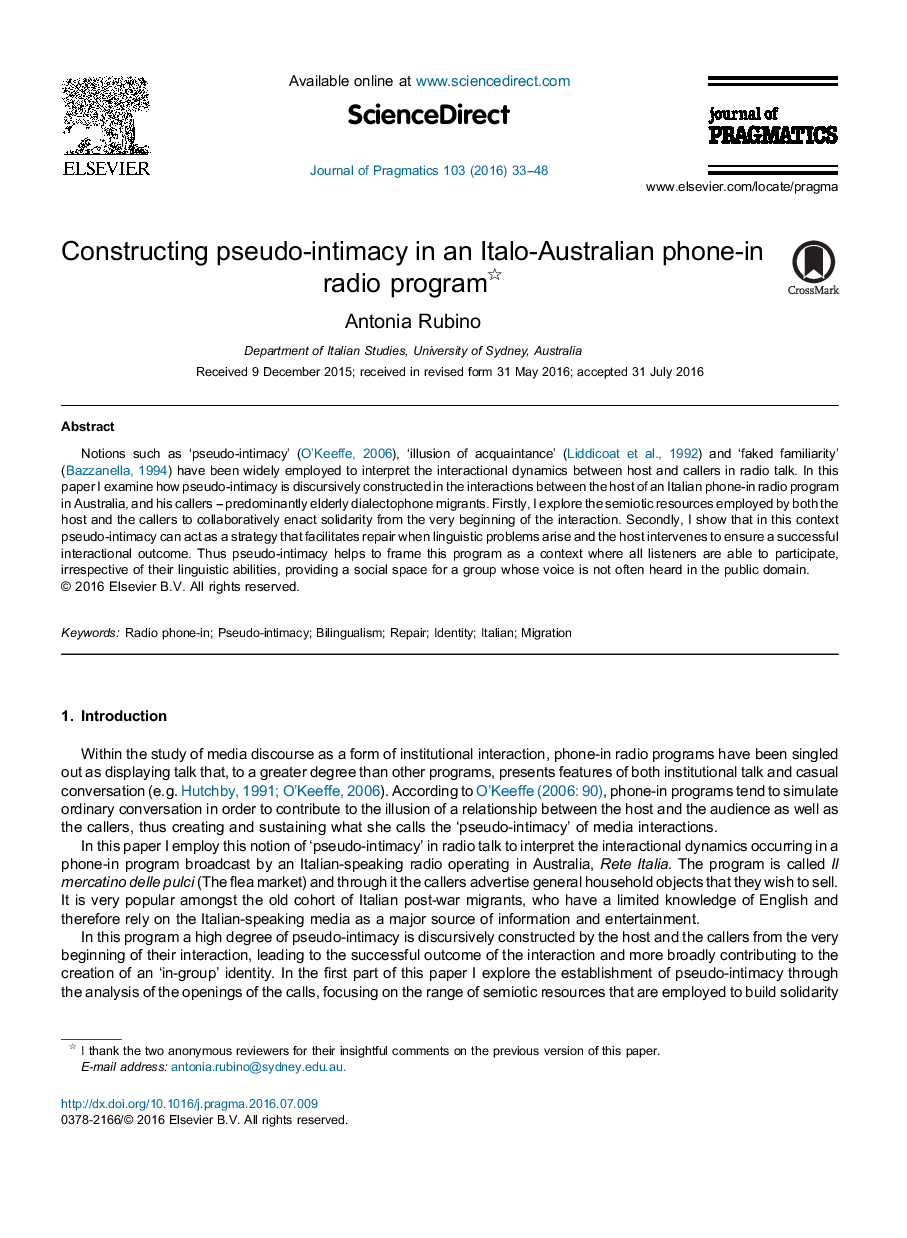| Article ID | Journal | Published Year | Pages | File Type |
|---|---|---|---|---|
| 7297783 | Journal of Pragmatics | 2016 | 16 Pages |
Abstract
Notions such as 'pseudo-intimacy' (O'Keeffe, 2006), 'illusion of acquaintance' (Liddicoat et al., 1992) and 'faked familiarity' (Bazzanella, 1994) have been widely employed to interpret the interactional dynamics between host and callers in radio talk. In this paper I examine how pseudo-intimacy is discursively constructed in the interactions between the host of an Italian phone-in radio program in Australia, and his callers - predominantly elderly dialectophone migrants. Firstly, I explore the semiotic resources employed by both the host and the callers to collaboratively enact solidarity from the very beginning of the interaction. Secondly, I show that in this context pseudo-intimacy can act as a strategy that facilitates repair when linguistic problems arise and the host intervenes to ensure a successful interactional outcome. Thus pseudo-intimacy helps to frame this program as a context where all listeners are able to participate, irrespective of their linguistic abilities, providing a social space for a group whose voice is not often heard in the public domain.
Related Topics
Social Sciences and Humanities
Arts and Humanities
Language and Linguistics
Authors
Antonia Rubino,
